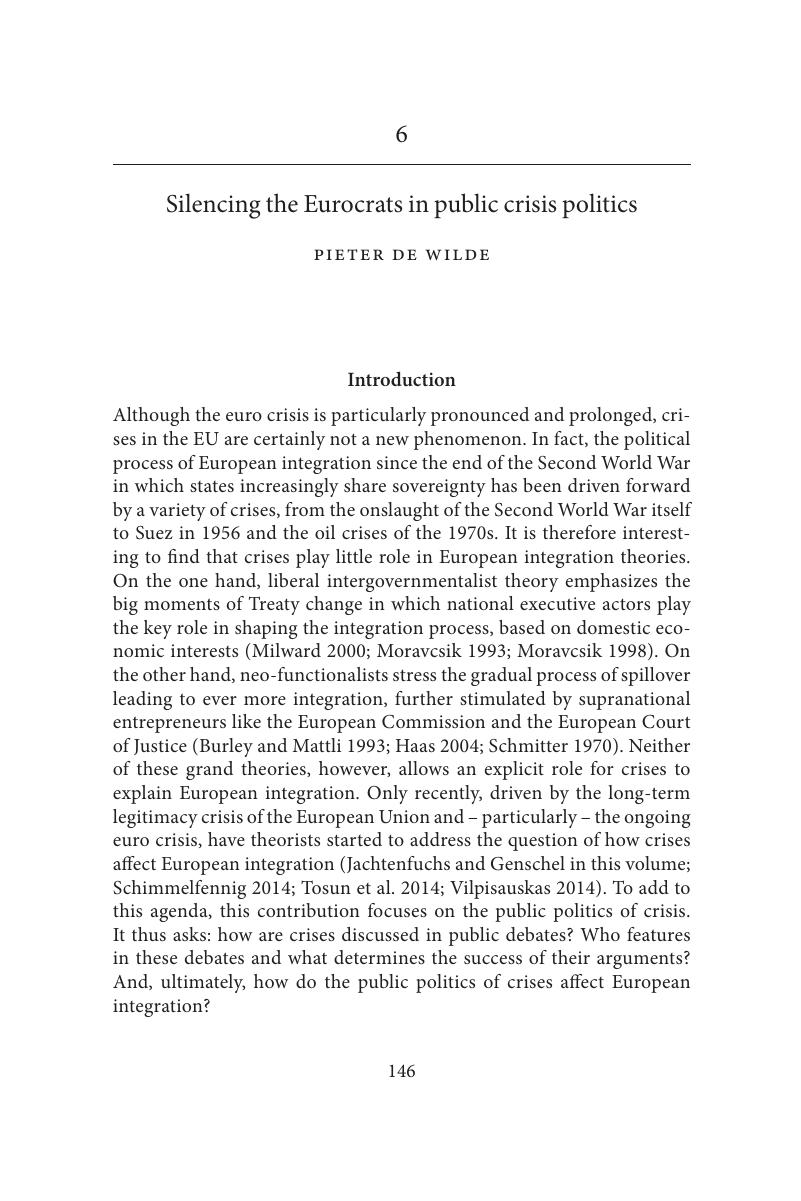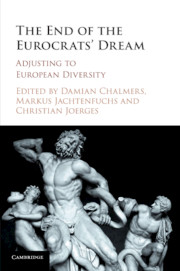Book contents
- The End of the Eurocrats' Dream
- The End of the Eurocrats' Dream
- Copyright page
- Contents
- Tables
- Preface
- 1 The retransformation of Europe
- 2 The costs of non-disintegration: the case of the European Monetary Union
- 3 Sharing the Eurocrats' dream: a demoicratic approach to EMU governance in the post-crisis era
- 4 Neumark vindicated: the three patterns of Europeanisation of national tax systems and the future of the social and democraticRechtsstaat
- 5 What Europe does to citizenship
- 6 Silencing the Eurocrats in public crisis politics
- 7 Conflict-minimising integration: how the EU achieves massive integration despite massive protest
- 8 An unholy trinity of EU Presidents?: Political accountability of EU executive power
- 9 The limits of collective action and collective leadership
- 10 Europe’s legitimacy problem and the courts
- 11 Crisis reconfiguration of the European constitutional state
- 12 Integration through law and the crisis of law in Europe's emergency
- Index
- References
6 - Silencing the Eurocrats in public crisis politics
Published online by Cambridge University Press: 05 June 2016
- The End of the Eurocrats' Dream
- The End of the Eurocrats' Dream
- Copyright page
- Contents
- Tables
- Preface
- 1 The retransformation of Europe
- 2 The costs of non-disintegration: the case of the European Monetary Union
- 3 Sharing the Eurocrats' dream: a demoicratic approach to EMU governance in the post-crisis era
- 4 Neumark vindicated: the three patterns of Europeanisation of national tax systems and the future of the social and democraticRechtsstaat
- 5 What Europe does to citizenship
- 6 Silencing the Eurocrats in public crisis politics
- 7 Conflict-minimising integration: how the EU achieves massive integration despite massive protest
- 8 An unholy trinity of EU Presidents?: Political accountability of EU executive power
- 9 The limits of collective action and collective leadership
- 10 Europe’s legitimacy problem and the courts
- 11 Crisis reconfiguration of the European constitutional state
- 12 Integration through law and the crisis of law in Europe's emergency
- Index
- References
Summary

- Type
- Chapter
- Information
- The End of the Eurocrats' DreamAdjusting to European Diversity, pp. 146 - 165Publisher: Cambridge University PressPrint publication year: 2016
References
- 3
- Cited by



